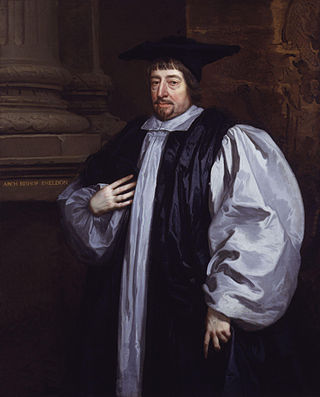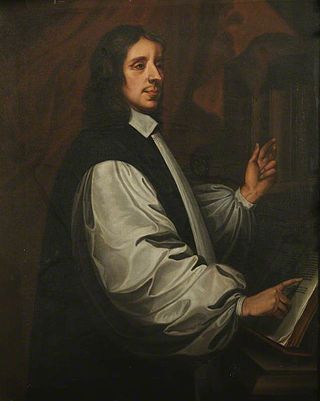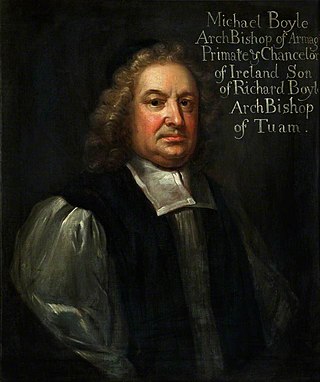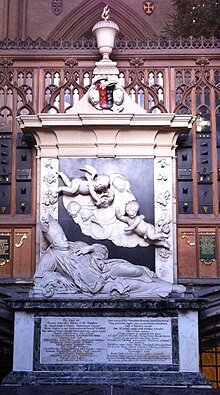
Gilbert Sheldon was an English religious leader who served as the Archbishop of Canterbury from 1663 until his death.

Edward Venables-Vernon-Harcourt was a Church of England bishop. He was the Bishop of Carlisle from 1791 to 1807 and then the Archbishop of York until his death.

John Fell was an English churchman and influential academic. He served as Dean of Christ Church, Oxford, and later concomitantly as Bishop of Oxford.

Richard Allestree or Allestry was an English Royalist churchman and provost of Eton College from 1665.
John Dolben, of Epsom, Surrey, was an English barrister and Whig politician who sat in the House of Commons from 1707 to 1710. He was deeply involved in the impeachment proceedings against Dr Henry Sacheverell in 1710, and his work on the impeachment is said to have contributed to his early demise.

John Williams was a Welsh clergyman and political advisor to King James I. He served as Bishop of Lincoln 1621–1641, Lord Keeper of the Great Seal 1621–1625, and Archbishop of York 1641–1646. He was the last bishop to serve as lord chancellor.

The Dean of St Patrick's Cathedral is the senior cleric of the Protestant St Patrick's Cathedral, Dublin, elected by the chapter of the cathedral. The office was created in 1219 or 1220, by one of several charters granted to the cathedral by Archbishop Henry de Loundres between 1218 and 1220.

Herbert Croft (1603–1691) was an English churchman, bishop of Hereford from 1661.

John Sharp was an English divine who served as Archbishop of York.
Baptist Levinz, sometimes Baptiste or Baptist Levinge, was an Anglican churchman. He is known as a bishop and also for the part he played in the dramatic election at Magdalen College, Oxford.
John Parker was a Church of Ireland clergyman who came to prominence after the English Restoration, first as Bishop of Elphin, then as Archbishop of Tuam and finally as Archbishop of Dublin and Primate of Ireland.
Laurence Womock (1612–1686) was an English bishop. He is best known for his controversial writings, some of which were signed Tilenus, after Daniel Tilenus, expressing his hostility to Calvinism in general, and the Synod of Dort in particular.
William Jane (1645–1707) was an English academic and clergyman, Regius Professor of Divinity at Oxford from 1680.
Thomas Pierce or Peirse (1622–1691) was an English churchman and controversialist, a high-handed President of Magdalen College, Oxford, and Dean of Salisbury.

John Kettlewell was an English clergyman, nonjuror and devotional writer. He is now known for his arguments against William Sherlock, who had justified the change of monarch of 1688–89 and his own switch of sides in The Case of the Allegiance. According to J. P. Kenyon, Kettlewell's reply made a case "with which conformist Anglicans could only agree, because it was spiritual, while Sherlock's was resolutely aspiritual". He went on to attack defenders of the Glorious Revolution generally as proponents of fallacious contractarian theories.

Michael Boyle, the younger was a Church of Ireland bishop who served as Archbishop of Dublin from 1663 to 1679 and Archbishop of Armagh from 1679 to his death. He also served as Lord Chancellor of Ireland, the last time a bishop was appointed to that office.
David Dolben (1581–1633) was a Welsh bishop of Bangor.
Sir Gilbert Dolben, 1st Baronet (1658-1722), of Finedon, Northamptonshire, was an English lawyer, landowner and Tory politician who sat in the English and British House of Commons between 1685 and 1715. He also served as a High Court judge in Ireland for many years. He was the grandfather of the leading anti-slavery campaigner Sir William Dolben.












